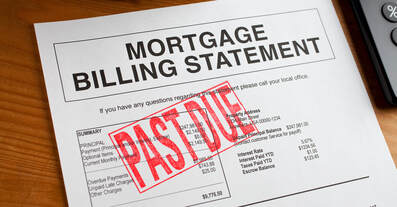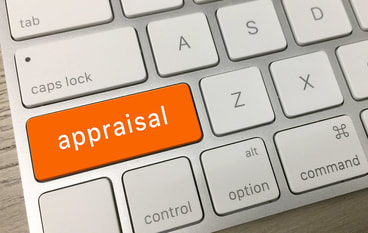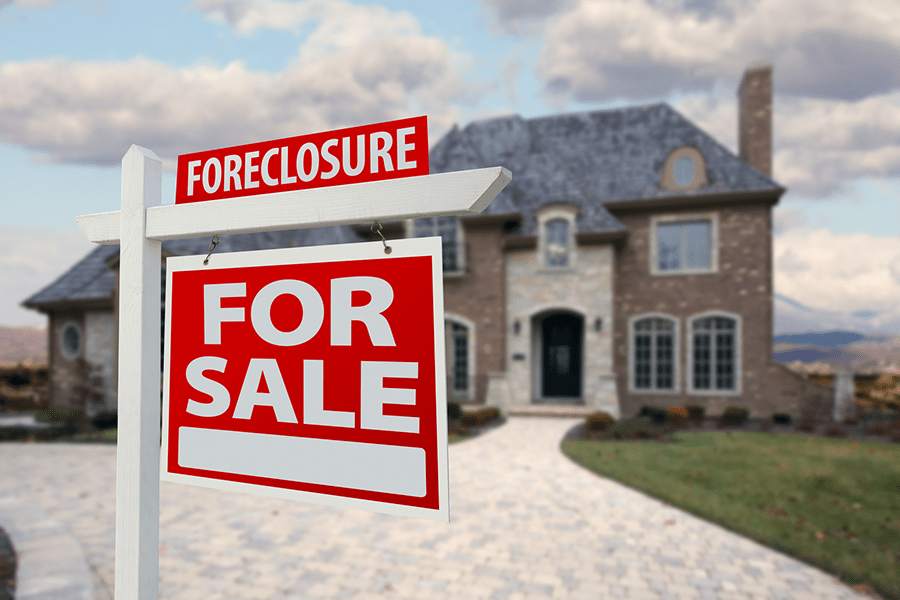|
Overview of Canadian Banking System
Canada's banking system is dominated by a few major banks – these are often referred to as the "Big Five." These banks include Royal Bank of Canada (RBC), Toronto-Dominion Bank (TD), Bank of Nova Scotia (Scotiabank), Bank of Montreal (BMO), and Canadian Imperial Bank of Commerce (CIBC). They play a significant role in the country's economy and financial sector. Composition of Bank Portfolios: Canadian banks hold a diverse range of assets in their portfolios, including mortgages, commercial loans, securities, and other financial instruments. Among these, mortgages are one of the most substantial components. Percentage of Assets Comprised by Mortgages: The percentage of assets represented by mortgages varies among Canadian banks, but typically constitutes a significant portion of their portfolios. According to recent data from the Canadian Bankers Association and financial reports from major banks, mortgages can make up anywhere from 40% to 60% of total assets. Breakdown by Major Banks:
Factors Influencing Mortgage Holdings Several factors contribute to the significant presence of mortgages in Canadian bank portfolios: 1. Strong Housing Market: Canada has experienced a robust housing market in recent years, driven by factors such as population growth, low-interest rates, and demand for housing. As a result, banks have increased their mortgage lending activities to meet this demand. 2. Regulatory Environment: Canadian banking regulations, including those implemented by the Office of the Superintendent of Financial Institutions (OSFI), require banks to maintain certain capital adequacy ratios and adhere to stringent lending standards. While these regulations aim to ensure the stability of the financial system, they also influence banks' mortgage lending practices. 3. Economic Conditions: Economic conditions, such as employment levels, inflation rates, and interest rate movements, can impact the demand for mortgages and the overall health of the housing market. Banks closely monitor these factors when managing their mortgage portfolios. Profitability of Mortgage Investments: 1. Revenue Generation: Mortgages are a key source of revenue for Canadian banks, contributing to their overall profitability. Banks earn income from mortgages through interest payments charged to borrowers. 2. Net Interest Margin (NIM): The net interest margin, which represents the difference between the interest earned on loans (including mortgages) and the interest paid on deposits and other sources of funding, is a crucial metric for evaluating the profitability of mortgage investments. 3. Profitability Metrics: Various financial metrics are used to assess the profitability of mortgage investments, including return on assets (ROA) and return on equity (ROE). These metrics measure the efficiency of banks' use of assets and equity to generate profits, respectively. 4. Risk Management: While mortgages can be lucrative for banks, they also carry inherent risks, such as credit risk and interest rate risk. Effective risk management practices, including robust underwriting standards, loan diversification, and hedging strategies, are essential for mitigating these risks and safeguarding profitability. 5. Regulatory Compliance: Banks must comply with regulatory requirements related to mortgage lending and risk management. Failure to adhere to these regulations can result in financial penalties and reputational damage. Conclusion In summary, mortgages constitute a significant portion of Canadian bank portfolios, typically ranging from 40% to 60% of total assets for major banks. While mortgages are a key revenue generator and contribute to banks' profitability, they also entail risks that must be carefully managed. Overall, the profitability of mortgage investments depends on various factors, including economic conditions, regulatory environment, and banks' risk management practices. If you’re interested in learning more or have a question about getting a private mortgage loan in British Columbia, give Jim a call today at 604.620.2697 to discuss your options. Selling your home in BC is a significant undertaking that involves careful planning and meticulous preparation. The way you present your home to potential buyers can greatly influence their decision-making process. To ensure a successful sale of your home in BC and maximize your property's appeal, it's crucial to address various aspects of your property. In this comprehensive guide, we'll explore the top 10 things to consider when readying your home to be listed for sale in British Columbia, Canada. 1. Curb Appeal: First impressions matter, and the exterior of your home sets the stage for what's inside. Enhance your curb appeal by maintaining a well-manicured lawn, trimming any bushes and trees, and adding fresh flowers or potted plants. Consider a fresh coat of paint for the front door and shutters, and ensure that the exterior of your home is clean and well-maintained. Whether your live in Vancouver or Surrey, Abbotsford or Victoria, or elsewhere in the Lower Mainland, your curb appeal is one aspect to focus on to make your house look ready for potential buyers. 2. Declutter and Depersonalize: Buyers want to envision themselves in your home, and a cluttered or overly personalized space can be distracting. Declutter each room by removing unnecessary items, organizing closets, and creating a sense of openness. Consider depersonalizing the space by removing personal photos and items, allowing potential buyers to imagine the home as their own. 3. Repairs and Maintenance: Be sure to address any necessary repairs and maintenance tasks before listing your home for sale in British Columbia. This includes fixing leaky faucets, repairing squeaky doors, and addressing any issues with the HVAC system. A well-maintained home signals to buyers that you have taken care of the property, instilling confidence in their purchase as they look to buy your home. 4. Professional Home Inspection: Consider hiring a professional home inspector before listing your property in BC. This proactive approach allows you to identify and address potential issues in advance, giving you the opportunity to fix any problems that could arise during the buyer's inspection. A pre-listing inspection can provide peace of mind to both you and potential buyers. 5. Neutral Colour Palette: While bold and vibrant colors may reflect your personal style, opting for a neutral colour palette for your home’s interior can appeal to a broader range of potential buyers. Neutral tones create a clean and inviting atmosphere, allowing buyers to envision their own décor and style within the space. 6. Home Staging: Invest in professional home staging to showcase your home in the best possible light. This is an aspect that may be overlooked by some, but can make quite the difference. Staging involves arranging furniture, decor, and accessories to highlight the home's features and create an inviting atmosphere. If you’re looking to preparing your home for sale in British Columbia, it’s important to note that well-staged homes often sell faster and at a higher price than those left vacant or poorly presented. 7. Proper Pricing: Determining the right listing price is crucial for attracting potential buyers. Research comparable properties in your neighbourhood – whether you’re in Burnaby, Surrey, Abbotsford, Kelowna, or Vancouver. Also consider recent sales, and consult with a real estate professional to set a competitive and realistic price. Overpricing can deter buyers, while underpricing may result in financial losses. 8. High-Quality Listing Photos: In the digital age, the majority of homebuyers begin their search online. High-quality, professional photos are essential to make your listing stand out. Showcase each room, highlight key features, and capture the essence of your home to generate interest and inquiries from potential buyers. 9. Marketing Strategy: Develop a comprehensive marketing strategy to promote your property. Utilize various channels, including online listings, social media, and traditional marketing methods. Consider creating a dedicated website or virtual tour to showcase your home's unique features and attract a wider audience. 10. Accessibility and Flexibility: Make your home accessible for showings and be flexible with scheduling. Buyers may have varying time constraints, so accommodating their schedules can increase the likelihood of a successful sale. Ensure that your home is well-lit and welcoming during showings, creating a positive and memorable experience for potential buyers. In conclusion, preparing your home for sale in BC involves a combination of strategic planning, attention to detail, and a commitment to creating a positive first impression. By addressing these top 10 considerations, you can significantly enhance the appeal of your home, attract potential buyers, and increase the likelihood of a successful and profitable sale. Remember, a well-prepared home not only stands out in a competitive market but also reflects the pride and care you've invested in your property.
If you have any questions or are looking for private mortgage lending options for a second or third home in BC, get in touch with us today to discuss your options. Give us a call at 604.620.2697.  In the dynamic realm of real estate in Canada, the foreclosure and power of sale processes play a crucial role in ensuring the orderly resolution of financial disputes and the protection of both lenders and borrowers. In British Columbia, Canada, these processes are well-defined, providing a legal framework that governs the transfer of property ownership when a borrower defaults on mortgage payments. What is Foreclosure? Foreclosure is a legal process through which a lender seeks to recover the outstanding balance on a mortgage loan by repossessing the property when the borrower fails to make their payments on time. In British Columbia, foreclosure is regulated by the Law and Equity Act. The process typically begins with the lender filing a petition in the Supreme Court of British Columbia, outlining the details of the default and the outstanding debt. Upon receiving the petition, the court reviews the case and, if satisfied, issues an order for foreclosure. This order allows the lender to take possession of the property and sell it to recover the outstanding debt. The property is usually sold through a court-ordered sale, with the proceeds used to settle the mortgage debt and any associated costs. It's important to note that British Columbia follows a judicial foreclosure process, meaning that the court is actively involved in overseeing the proceedings. This ensures transparency and fairness in the resolution of foreclosure cases. Power of Sale Process
Alternatively, the power of sale process provides a non-judicial mechanism for lenders to recover their funds in the event of default. The power of sale is a contractual right granted to the lender through the mortgage agreement, allowing them to sell the property without court intervention in the event of default. The lender must serve a notice of sale to the borrower and any other parties with an interest in the property, providing a specified period for the borrower to rectify the default. If the default is not cured within the prescribed timeframe, the lender can proceed with the sale of the property. The proceeds from the sale are then used to satisfy the outstanding debt, and any surplus is returned to the borrower. Key Differences and Considerations While both foreclosure and power of sale processes serve the same fundamental purpose, there are key differences between them that one must keep in mind. The foreclosure process involves court oversight, providing additional protections for borrowers, while the power of sale process allows for a quicker resolution without court involvement. Borrowers in British Columbia facing foreclosure or power of sale should be aware of their rights and options. They may have the opportunity to cure the default, negotiate with the lender, or seek legal advice to explore alternatives such as loan modification or refinancing. In conclusion, the foreclosure and power of sale processes in British Columbia are vital components of the legal framework governing real estate transactions. These processes provide lenders with mechanisms to recover their funds in the event of borrower default, while also safeguarding the rights of borrowers through legal oversight and established procedures. A nuanced understanding of these processes is essential for both lenders and borrowers navigating the intricate landscape of real estate transactions in British Columbia. If you have any questions about the foreclosure or power of sale process, or if you would like to know how a private mortgage loan could help you in a foreclosure situation in British Columbia, get in touch today. Call Jim today at 604.620.2697 for a friendly conversation and learn more about your options. Key Considerations for Buying Rental Investment PropertyThe dream of owning a rental investment property in BC, with monthly cashflow and potential increases in value year after year, is the desire for everyone I know. The idea of sitting back and enjoying the benefits of an investment in real estate may certainly offer peace of mind to you and your loved ones. However, the realities of property ownership in BC can also have enormous challenges that one should be aware of. There are many costs and expenses associated with owning a rental property which may deter investors from engaging. With the numerous expenses one may anticipate, the profit to the investor may quickly be diminished, making the entire investment not worthwhile. Furthermore, there are various types of rental properties to consider investing in, which will also determine the benefits or challenges. The list goes on and on. Whether you live in the Greater Vancouver area or Lower Mainland, Vancouver Island or up in the Interior of BC, it is important to be aware of the costs to consider when purchasing a rental property in British Columbia. Here is a comprehensive list of the costs and expenses to consider for an investment rental property in BC, along with some potential challenges: 12 Costs to Consider When Purchasing a Rental Investment PropertySubstantial down-payment An investor must set aside a sizeable down-payment in today’s market to qualify for & justify the purchase of an investment rental property in BC. With property values in the province being so high, it will require a large down-payment to bring the operating costs down to a manageable level to be debt serviceable. The potential investor also wants to ensure there is enough revenue each month to cover costs and avoid having to put their own money out of pocket to help with expenses. Mortgage Payment & Interest Cost: Any loan or mortgage you must carry on the property will have a monthly payment that you will have to account for. This mortgage payment usually makes up the single largest monthly expense for the investor. Interest rates change and so will the allocation of principal and interest with each monthly mortgage payment. It is important to structure a cost-effective mortgage with the investment property. Ideally, the investor would desire to minimize the interest expense and rapidly pay down the mortgage. Property Taxes: Property taxes are a fixed expense due each year. The amount can vary based on the ever-changing municipality and market conditions in British Columbia. Strata Maintenance Fees: Another fixed monthly expense for strata property owners. Used to assist with general maintenance upkeep, strata services, contingency reserves - this is a monthly expense that one can never anticipate being reduced. Strata fees only seem to increase after time and never decease. Furthermore, with a strata property comes the potential for future special assessments. Should there be major issues with the strata development such as water damage (ie. “Leaky Condo”), the out of pocket expenses can be crippling. Insurance: You must have insurance to cover the property from perils and liabilities. Having to maintain insurance is another fixed expense and extremely important to have when purchasing a rental property in BC. The investor needs to ensure that the property investment is fully protected from the unexpected. Realtor & Leasing Agent Fees and Commissions: Should you seek the services of an agent to help with marketing and managing your investment rental property in BC, there will be a cost for these services. The agent will use their skills and tools to find a suitable renter for your property. The agent will assist you in qualifying the potential applicant to ensure you have a great candidate to rent your property. The agent may also offer to collect the monthly rent and handle general inquiries to satisfy any renter demands on your behalf. The property investor would be insulated from having to deal with any renter issues. All of these agent services, plus many others, come with a fee. The basic average property manager fee may range from 7-10% of the gross monthly rent/lease. Maintenance & Repairs: These expenses are not fixed but can arise at any time, unexpectedly. When this happens, immediate action must be taken, and the expenses are incurred on the spot. Typically, the property owner must address plumbing or electrical issue, appliances that need replacing, a new roof or fence, etc. The property undergoes wear and tear so there will be ongoing maintenance required. There may also be the issue of an unruly tenant - one who intentionally damages and vandalizes the property. The repair work in cases such as this may be significant. Utility Expenses: Unless the rental agreement states otherwise, the property investor must account for the costs of heat, water, electricity, hydro, cable/internet. Marketing Costs: If the property owner opts to waive the services of a rental agent, then the costs of finding a suitable renter falls on the investor. The actual monetary cost of running ads and the time spent on interviewing potential renters can be immense. This is true especially for the new and inexperienced property investor. Accounting Fees & Costs: Strict accounting records must be kept and maintained for the investment property. This to highlight the revenues, but also the various costs and expenses to minimize the tax liability to the property investor. As a result, in most cases the property investor must employ the services of a capable financial service provider to help with tax return preparation. Legal Fees & Costs: These costs would be incurred for such items as preparing rental contract/leases, dealing with overdue rental collections or any other legal issues. Legal fees are also incurred when an investor purchases or sells a property in BC. Landscaping: The cost of keeping the yard and gardens maintained and manicured are another expense for the property investor to consider. This may only be a seasonal expense, but regardless, it can be expensive and time consuming to manage. The information provided above is meant to offer an overall snapshot of the types of expenses a real estate investor may anticipate when pursuing a rental property in British Columbia. The rental investment property market in BC is vast and so are the numerous options and challenges that come with it. It is strongly recommended that prior to engaging and snapping up that investment property, that you seek the services and advice of a real estate expert. A real estate professional will guide and offer you the tools and important information to help you make the right wise decision.
If you are a current homeowner in Vancouver, Surrey, Burnaby, Abbotsford, or elsewhere in the Lower Mainland and are looking to pursue an investment rental property, speak with us today should you have any questions. Similarly, we are also serving clients in Kelowna and the Okanagan Valley who pursue investment rental properties in the Interior of BC. For more information about how you can leverage your existing home equity to pursue an investment rental property, get in touch with us today by clicking here or giving us a call at 604.620.2697. If you are thinking about purchasing raw land in British Columbia, Canada for the purpose of building a house, recreational property or for investment, there are many factors and costs to consider. The cost of servicing the land for construction and to build out may be quite significant. Furthermore, if you are holding the land as investment, one should be aware that this is a risky and speculative type of business venture. Those who do purchase raw land and make money from it tend to be sophisticated real estate experts, who understand the mechanics and potential industry circumstances. The purchaser must have a clear and objective focus in terms of goals and the inherent risk. As a result of numerous risks surrounding raw land, the potential rate of return on your investment may be extraordinary. Let’s go over some of the pros and cons of purchasing raw land and how a private mortgage loan in BC can help you achieve your investment goals. Advantages of Purchasing Raw Land in British Columbia: Cost
Disadvantages of Purchasing Raw Land: Financing
Private Mortgage Loans for Raw Land Purchase in British Columbia
If you are a current homeowner in BC and are considering making a purchase of raw land, it’s important to understand the advantages and disadvantages of this type of investment. If you have any questions or concerns regarding the purchase or financing aspects of raw land, please contact a mortgage specialist to better understand your options. Whether you live in Surrey, Langley, Abbotsford, Kelowna, or elsewhere in British Colubmia – get in touch with us today to learn more about how Silver Hill can help you achieve your goals with a private mortgage loan. Defaulting on your mortgage may have serious consequences. If the borrower breaches any terms of the mortgage or misses regular payments, the lender has many firm remedies they may exercise to protect their investment. Making your regular payments on time and keeping within the terms of the loan will spare you potential foreclosure and plenty of grief. What are mortgage arrears? As in any contract, your mortgage agreement will outline all the terms and conditions related to your loan, specific to you. You fall into mortgage arrears when you start falling behind on your payments – for example, missing a mortgage payment. Missing mortgage payments go against the terms agreed upon when you initial took out the loan, and is to be avoided as much as possible. Any breach of the terms and conditions by the borrower may trigger the lender to take corrective action. Why do people fall into mortgage arrears?Some of the most common reasons for default would be for:
Given the above reasons, one may find themselves in a difficult situation. However, there are also many options for the borrower to consider if they are in default of the mortgage contract. How do I get out of mortgage arrears?Some of solutions for those currently behind in mortgage payments include:
Due to the fact that mortgage finance makes up the bulk of real estate transactions, there is a greater likelihood of challenges and problems. Borrowers are faced with high unemployment, failing businesses, times of recession and so many unexpected things in life, which may result in financial turmoil. There are several solutions for the borrower if behind on their mortgage. Private Mortgage Lenders for Bad CreditIt would be wise to speak with a mortgage broker to get your options laid out for you if you are faced with mortgage arrears and imminent foreclosure. If you have bad credit and are looking for private mortgage lenders, and live in Surrey, Vancouver, Abbotsford, or elsewhere in the Lower Mainland, give us a call today at 604.620.2697. You don’t have to do this alone – let’s discuss your options.
If you are considering purchasing an investment property in Kelowna, Vernon, Kamloops, or elsewhere in the Okanagan Valley or Lower Mainland, with the intention to renovate, there are key items to seriously consider. Others may consider to invest in properties in the Metro Vancouver area, spanning Vancouver, Burnaby, Langley, Surrey, or the tri-cities – but the planning remains fairly the same when looking into renovating. As you know, real estate investing in Kelowna, Vancouver, or elsewhere in BC is not cheap by any means and requires some considerable planning. The process and plan should consist of selecting the ideal property, renovating, and preparing it for rental or to sell for a profit. Top Things to Consider When Purchasing an Investment Property for RenovationWhen you are in the process of selecting a real estate investment property for renovation in BC, here are 6 main factors to focus on: NeighbourhoodThe location and neighbourhood should be pleasant and attractive. The neighbourhood should be safe, crime free and preferably family oriented. Whether you are looking for a real estate investment property in West Kelowna, or a townhouse in Surrey, the location within those cities definitely matter. Renovation Permits & RequirementsThe property should be easy to renovate, meaning that there is no need for many permits and applications required from the city authority. Depending on if you are buying a rental or investment property for renovation in Kelowna, Kamloops, Vancouver, Victoria, or Langley – be sure to understand the different requirements from the city authority to renovate as smoothly as possible. The least amount of resistance from any third party and streamlining the process is best. Find a house which has as little major renovation obstacles to overcome as possible. Try and avoid situations involving faulty issues with foundation and building structure. Access to Amenities & Walking ScoreEnsure that the property has access to as many amenities as possible. These amenities would include shopping, transit, schools, and even health centres and hospitals. It is a benefit having many of these amenities as close to the residence as possible, whether you are looking to rent the space out or sell it for a profit. LocationAvoid properties which are very isolated. Perhaps the price point may be far less for properties further out of major towns and cities, but they are not always as desirable. This is for the obvious reason, that location is what sells and makes the property extremely desirable. The best location typically gets the best results, which should be a factor to consider when investing in property in BC. Good CraftmanshipIncorporate good quality and noticeable craftsmanship in the renovation work to be done. A visible appreciation and acknowledgement of the work completed should be achieved. Take pride in the renovation and ensure you have the work done right by a professional. Avoid cutting corners and try not to cheap out on certain aspects if you can avoid it. New DevelopmentsSeek out a location which has plenty of new construction and renovations on going. The construction activity and atmosphere will complement the property you are renovating. It will resonate an appealing image that you are beautifying the property to come. Renovating a property in BC is an exciting experience for many, but you want to make sure that you are familiar with the process. If you lack the experience but have the desire, you should educate yourself and seek out expert advice. You may consider connecting with several contractors and have them assist with the planning and give you independent quotes for the work to be done.
If you are looking to get started with renovating your property but are having challenges with the financing, and are located in Kelowna, Vancouver, Surrey, Langley, Victoria, or elsewhere in BC - get in touch with us today and we can walk you through the process of leveraging your home equity to finance your home renovation. If you are looking to pursue an investment property for renovation to later rent out or sell for a profit, we may also have a private mortgage solution for you. Leave a comment below or get in touch with us today at 604.620.2697 to discuss your options. Appraising a property has so many benefits, since no two pieces of real estate are identical. If you intend to buy or invest in real estate in Vancouver, Surrey, Kelowna, Victoria, or elsewhere in BC, finding the right appraiser to support in the process is important to keep in mind. Professional appraisal companies prepare the reports and offer an opinion of the estimated value based on several market and subject property details. An appraisal report is highly dependent on the expertise and objectivity of the property appraiser, and the assumptions they make.  Benefits of a Home Appraisal There are numerous benefits of having a professional appraisal prepared. Reasons for having an appraisal report prepared would be: - to determine property value for a potential property purchaser as he contemplates an offer to purchase - to determine property value for the mortgage financing requirements by a mortgage lender - to determine property value for house / building & property insurance - to determine property value as you try and figure out an asking price for your property - to determine property value if you appeal your property tax assessment with the municipality - to determine property value as you deal with family estate matters such as death or divorce - to determine property value for potential property expropriation purposes - to determine property value for any court litigation purposes - to determine property value for capital gains taxation  If you seek to get an appraisal completed in BC, ensure you search out appraisal companies who have their professional designations and are regulated by their associations.
Two appraiser designations to be on the lookout for when looking for a property appraiser are:
It is extremely important to find the right appraiser especially if you intend to invest in real estate. Need more info on property appraisals or pursuing a home equity loan? Get in touch with Jim today for a friendly chat at 604.620.2697. Are you looking to purchase a home? Exploring your real estate options in Vancouver, Surrey, Kelowna, or elsewhere in BC? Whether you are looking into buying a summer home in the Okanagan, or purchasing an investment property in the Lower Mainland, it’s best to do your research and understanding the 5 main areas that affect real estate prices. Let’s take a look!
Location: Location, location, location. This is one of the most significant factors which influence the price of real estate in BC. You could be looking at purchasing a property in a certain neighbourhood of Vancouver or Surrey, or perhaps a summer property in Kelowna or Vernon, but essentially – the more desirable the location, the greater the value and pricing. As you assess the location of real estate, it is important to factor in amenities, appearance, centrality, along with potentials for development and expansion. It is often said that value-wise you are likely better off having and average house in a great location, than having the best house in a poor location. Further, location is one of the most determining factors in resale value and ability. Property location creates desirability, and this desirably creates an unwavering demand for such real estate. Supply & Demand: The amount of supply vs the demand for housing will certainly affect the price of real estate in BC. As previously stated, location creates desirability, desirability creates demand, and this demand raises property prices. The lack of the availability of desirable property will also affect prices in the area. The fewer the number of desirable properties, the more expensive and valuable they become. The opposite is also true. If there are too many properties available to purchase in one particular location, the prices will tend to weaken. Economy: A strong economy is extremely important in stimulating the real estate market. If the economy is strong and the overall feeling is positive, the market activity will be positive, and this should push prices upward. On the flipside, if there are negative or doubtful feelings of the economy, this will seemingly lower the price of real estate. Property Taxes: This segment would include many of the property taxes buyers or investors may be challenged with. High property taxes, property purchase tax, capital gains tax, speculation tax… all may be compounded and affect property values negatively. These taxes will not only affect prices, but the overall market activity in certain areas. Generally, taxes play a large deterrent for many real estate buyers and investors, as they can become quite expensive. Shift in Population/Demographics: If a certain location has plenty to offer, such as amenities, industry, infrastructure, natural beauty and opportunities, there will be a desire for residents to settle and remain. This attraction of residents will certainly fuel demand and the upward push of property values. Conversely, if there are economic woes and industries move or close down forcing folks to leave, this will affect property values negatively. There are other factors which may affect the price of real estate in BC and these would include: borrowing interest rates, rent controls, vacancy levels, seasonal factors, public perception, and the type of government party currently in charge. If you are a current homeowner looking to purchase a property or are looking for a private mortgage loan and are located in Vancouver, Surrey, Kelowna, Langley, Victoria, or elsewhere in BC, apply now for a free quote or call us today at 604.620.2697. We’d be happy to help you understand your options. Buying an investment property, whether you're in Kelowna, Surrey, Victoria, Vernon, or elsewhere in B.C., definitely has its allure. For one, Kelowna and the Okanagan are one of the top emerging real estate markets in Canada. On another note, some may opt to invest in real estate further outside of Vancouver such as in cities like Surrey, Burnaby, Richmond, Coquitlam, given the increasing trend of working from home, the perk of more space, and potential for growth as these areas continue to expand. Regardless of city, many have made a fortune in real estate and are financially independent as a result. The real estate market in Canada over the past 25+ years, has created an amazing number of millionaires. Many were created as their primary residence has inflated exponentially in value over the years. Most of these millionaires were created in certain regions within the country, where real estate values have gone up substantially. If you live in the Metro Vancouver or GTA area, you may know that the two primary regions where this has occurred is the Greater Toronto Area and Metro Vancouver. Many of these folks have benefited from tremendous equity build up. As a result, they can leverage themselves and explore many other investment opportunities and use this equity to build their wealth even further. Many use their available equity and leverage themselves further into the real estate market. Ownership of an investment or rental property is extremely attractive to many, and their pursuit relentless in some cases. There are many advantages to starting up your real estate investment portfolio, as well as some disadvantages. All of this is dependent on type of market, geographic location, and many other factors. Is Real Estate a Good Investment? Real estate investing in some cases, perhaps in most, is far more attractive than most other types of investments. If you’re looking to invest in real estate in Vancouver, Surrey, Victoria, Kelowna, or elsewhere in the Lower Mainland, consider the many advantages to doing so in building your wealth. This is due to the main advantages associated with it, which include: Lower Risk Level Real estate has always remained a solid and secure investment. Of course, the risk level is dependent on the geographical area, market conditions, and other factors. However, traditionally it tends to increase in value over time even as the market may go through cycles. Leverage It is far easier to borrow against real estate than other types of liquid assets. Lenders are more inclined to lend on real estate since it is a desirable investment. The market lenders offer many options to the real estate owner should they ever want to borrow against their property. There are lenders for all property types and just about any situations you can imagine. You are the Boss Owning a home puts you right in control of your investment. You call the shots and there is not much experience required. The process itself of owning a home is easy and quite seamless. Most homeowners learn and acquire their real estate skills as they continue to own the property. Homeowners usually only answer to themselves since they are ultimately in charge. Saves Time In most cases, home ownership is a part-time job. Not only is little experience required, but also part-time involvement from the owner. There is no requirement to be involved in a time-consuming process. Home ownership is low activity and usually a turnkey operation requiring very little effort to manage. Build Equity As previously mentioned, real estate tends to increase in value over time. As a result, the owner will build up equity in the property. This increase in value may be leveraged and used for other investments. It provides the property owner with options and recourse to pursue and engage in other investment activities. Income Tax Benefits Unlike other investments, there are far more potential tax benefits available to the property owner. Investments such as stocks, GICs, RRSPs, etc. are all subject to income or investment income tax. There is no opportunity for the investor to try and minimize the income tax paid on these types of investments when realized. Real estate on the other hand, does offer certain tax benefits. For example, the equity appreciation on your primary residence is tax free. Any increase in value in your home is tax exempt. This is a tremendous tax advantage for a homeowner. A property owner may also use expenses incurred on an investment property as a taxable write-off or benefit. This is an example of offsetting and equity appreciation, by the costs associated in maintenance of the asset. There are potentially many other taxable benefits to the property owner. On the flip side, there are a few other sides of the coin to consider as well:
Initial Capital Investment To become a property owner, you must have funds available to apply as a down payment for the purchase. This is a struggle for many, because depending on the market, one may need a substantial amount of funds in securing a property. As you know, it takes time to save money and it is not an easy task. Be prepared to invest a large sum up front to realize your property investment. If you currently own a home in Vancouver, Surrey, Kelowna, or elsewhere in BC, and want to explore your options in pursuing a second or investment property, get in touch with us today. Liquidity is tied up Once you own a property, your resources are then tied up into the property. These resources are committed to the property and cannot be accessed so readily. So be prepared to part with and have your funds sitting invested into your property. This may limit your ability to diversify and pursue other investment opportunities. To create some sort of liquidity, you would have to borrow against the property or sell it. Please keep in mind that a real estate investment can really pin you down financially. Length of Ownership Purchasing a property usually involves a commitment from the owner for an extended period. Having taken on one of the largest financial obligations with property ownership, most are in it for the long haul. As you know, it can take a long while for real estate to appreciate. On the other hand, real estate values can also retreat and slip away with varying market conditions. If values decline, then there is ground to be made up and one might be forced to hang on for far longer than anticipated. Government Regulations Government rules and regulations may also influence the real estate market. Government ultimately calls the shots and can have an extreme impact on real estate values. Realistically, the government owns all the real estate as we know it. Property owners may hold a deed for the land, but the government is the trustee. The government has the power to expropriate, rezone, re-develop, license…. most real estate as they choose. All of these variables may affect the property value. All of the factors mentioned as being an advantage or disadvantage will certainly impact the value of your property. As a result, it is highly recommended that you do thorough research and get expert advice prior to engaging in the purchase of property. Interested in learning more about investing in real estate in Surrey, Vancouver, Kelowna, Victoria, or elsewhere in BC? Get in touch with us today to explore your options. Are you looking for a private mortgage lender to help you get started with investing in real estate? Click here or give us a call today at 604-620-2697 and we’ll get back to you within 24 hours. |
Silver Hill BlogJim Horvath is the principal broker and director of Silver Hill Mortgage Corp., arranging private mortgage loans in British Columbia for over 25 years. Archives
May 2024
Categories |
|
Silver Hill Mortgage Corp. Head Office
2902 West Broadway | Suite #302 Vancouver, BC, Canada V6K 2G8 E: info@yourequityloan.ca P: 604.620.2697 F: 855.299.5832 (Toll Free) |
Stay in Touch |
About UsSilver Hill Mortgage Corp. is a trusted industry leader in delivering home equity loans and other private mortgage financing solutions for homeowners and bank declined customers in British Columbia. Get in touch to get approved today.
Copyright © 2024 Silver Hill Mortgage Corp. All rights reserved. |
Proudly serving our BC communities:
Vancouver Private Mortgage | Surrey Private Mortgage | Burnaby Private Mortgage | Richmond Private Mortgage | Abbotsford Private Mortgage | Kelowna Private Mortgage | Nanaimo Private Mortgage | Victoria Private Mortgage | White Rock Private Mortgage | Coquitlam Private Mortgage | Langley Private Mortgage
Vancouver Private Mortgage | Surrey Private Mortgage | Burnaby Private Mortgage | Richmond Private Mortgage | Abbotsford Private Mortgage | Kelowna Private Mortgage | Nanaimo Private Mortgage | Victoria Private Mortgage | White Rock Private Mortgage | Coquitlam Private Mortgage | Langley Private Mortgage


















 RSS Feed
RSS Feed
